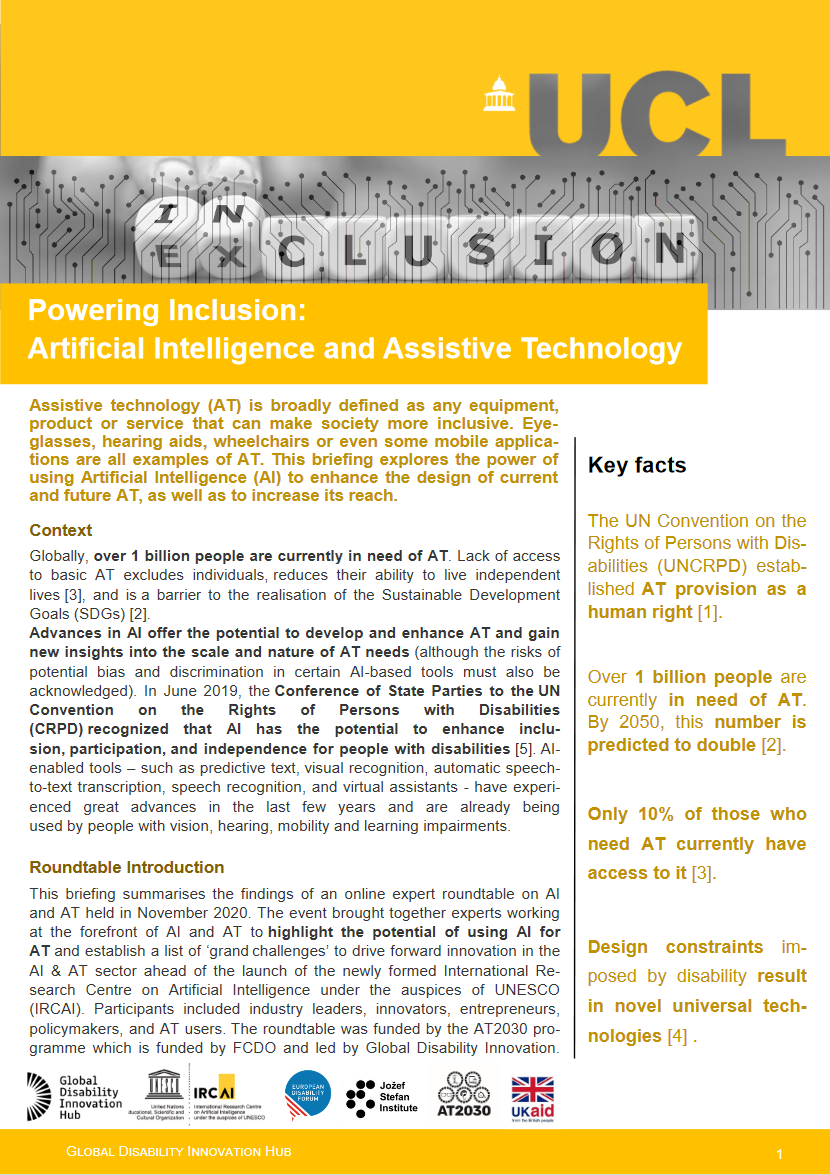Publications
-
Powering Inclusion: AI and AT. The findings of an online expert roundtable
Global Disability Innovation Hub, University College London, UNESCO's International Research Centre on Artificial Intelligence, European Disability Forum, Jožef Stefan InstituteMarch 29, 2021GlobalCase Studies and ReportsThis briefing summarises the findings of an online expert roundtable on AI and AT held in November 2020. The event brought together experts working at the forefront of AI and AT to highlight the potential of using AI for AT and establish a list of ‘grand challenges’ to drive forward innovation in the AI & AT sector ahead of the launch of the newly formed International Research Centre on Artificial Intelligence under the auspices of UNESCO (IRCAI). Participants included industry leaders, innovators, entrepreneurs, policymakers, and AT users. The roundtable was funded by the AT2030 programme which is funded by FCDO and led by Global Disability Innovation Hub (GDI Hub). The session focused on four areas: AI & Communication, AI & Mobility, AI & Improving Information,
-
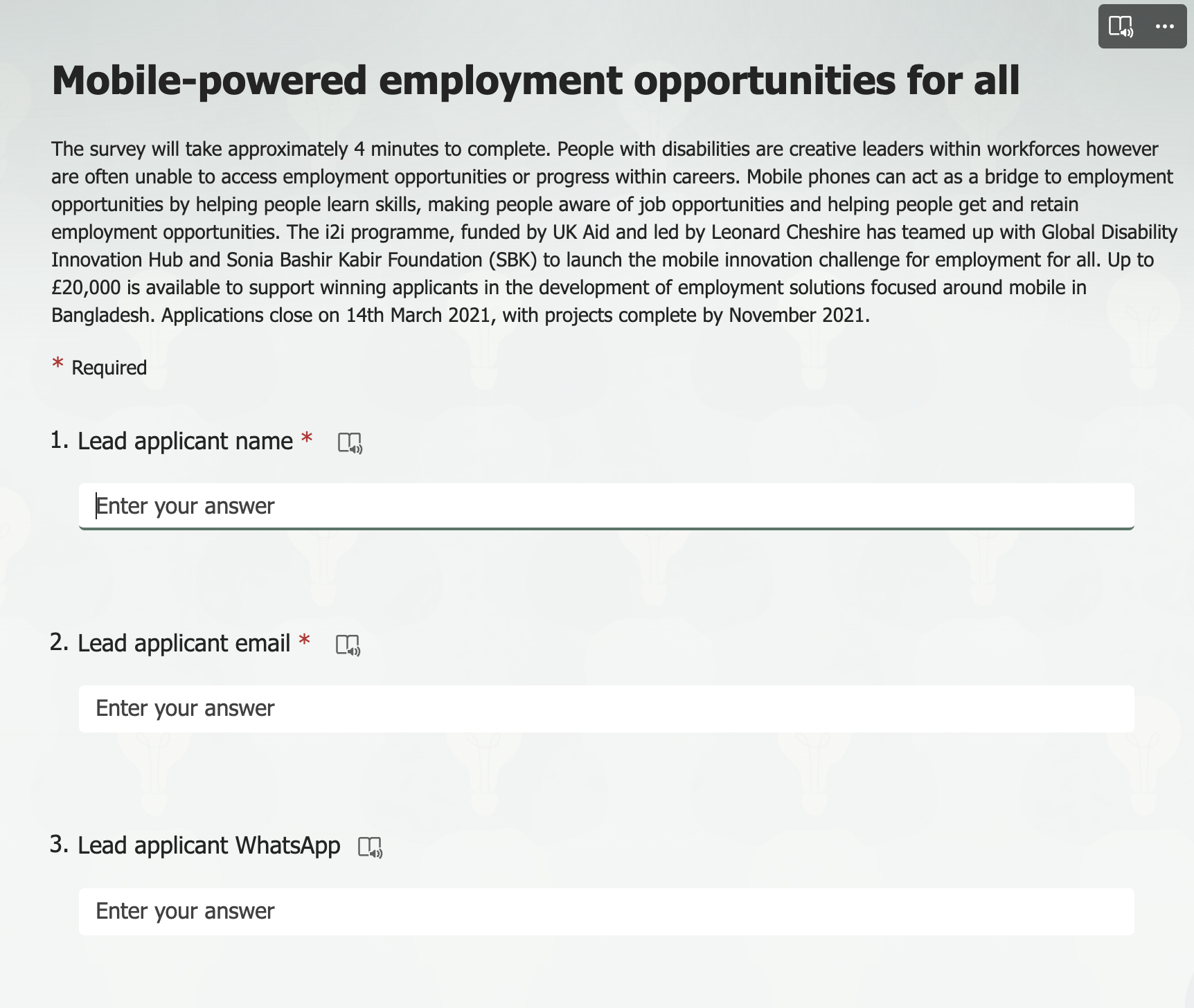
Mobile-powered employment opportunities for all; i2i challenge call for Bangladesh
Global Disability Innovation HubMarch 14, 2021BangladeshAT2030 ResourcesPeople with disabilities are creative leaders within workforces however are often unable to access employment opportunities or progress within careers. Mobile technology can act as a bridge to employment opportunities by helping people learn skills, increasing awareness of job opportunities and helping to get and retain employment opportunities. The i2i programme, funded by UK Aid and led by Leonard Cheshire has teamed up with Global Disability Innovation Hub (GDI Hub) and SBK Foundation to launch the mobile innovation challenge for employment for all. Up to £20,000 is available to support winning applicants in the development of employment solutions focused around mobile in Bangladesh with access to global expertise from GDI Hub and local innovation networks and support through SBK Foundation. Applications close on 14th March 2021, with projects completed by November 2021.
-
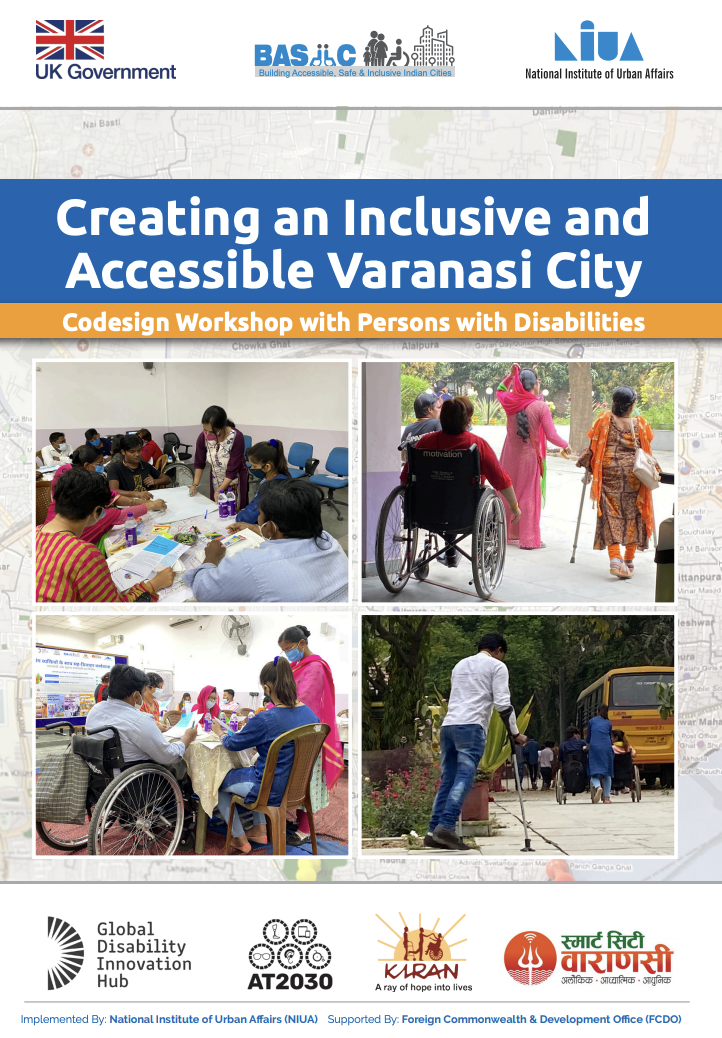
Creating an Inclusive and Accessible Varanasi City
National Institute of Urban Affairs (NIUA)March 12, 2021IndiaCase Studies and ReportsOn 12th Mar. 2021, a Co-design Workshop with Persons with Disabilities was conducted in Varanasi. The workshop was jointly organised and facilitated by GDI Hub and NIUA along with the support from Kiran Society (Varanasi based Disabled People’s Organization) and Varanasi Smart City Ltd (city stakeholder). The workshop was titled as “Co-design workshop with persons with disabilities – Creating a more inclusive and accessible Varanasi”.
-
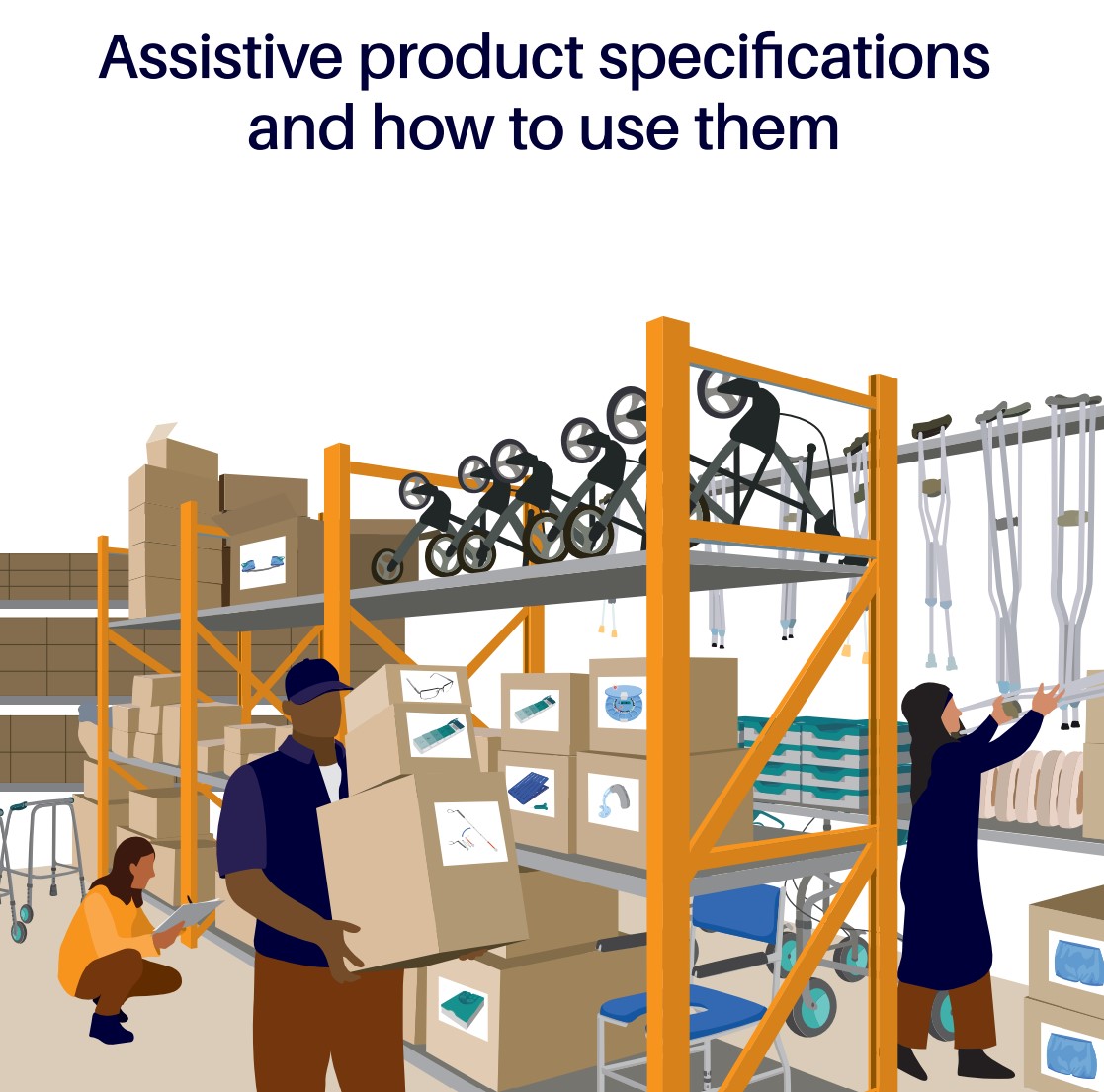
Assistive product specifications and how to use them
World Health OrganizationMarch 1, 2021AT2030 ResourcesThis document was developed by the World Health Organization (WHO) to guide the procurement of assistive products. It is intended primarily for procurement teams working in less-resourced settings. It includes 26 assistive product specifications (APS).
-
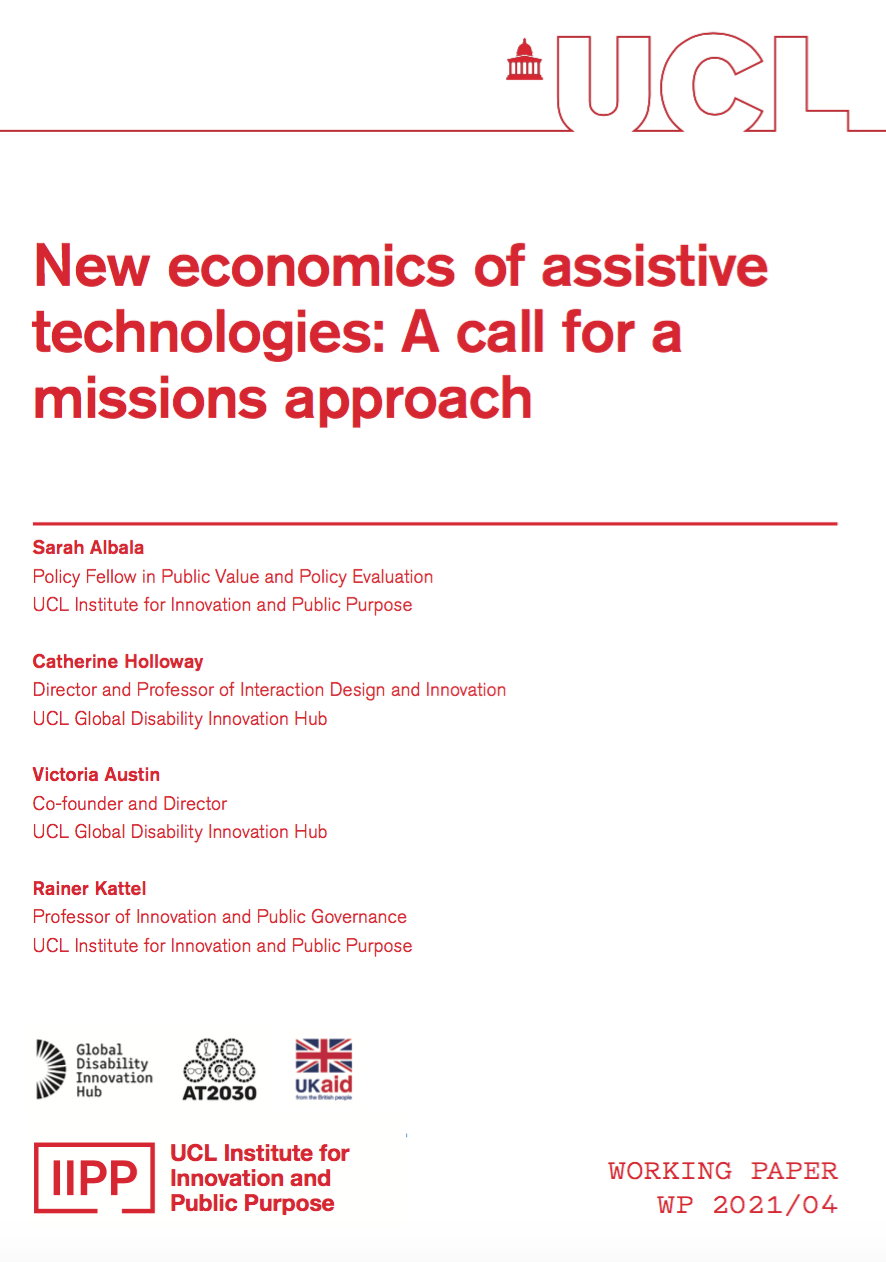
New economics of assistive technology: A call for a missions approach
Catherine Holloway, Vicki Austin, Sarah Albala, Rainer KattelJan. 25, 2021GlobalAT2030 ResourcesPart of the Data & Evidence Cluster this working paper answers one of the three main research questions: A Mission-Led Approach. This paper proposes a public sector-led, mission-oriented approach. While setting the mission and the directionality is the role of government, NGOs, industry, AT users and the charity sector are able to drive forward the agenda of AT access through their own essential and complementary roles.
-
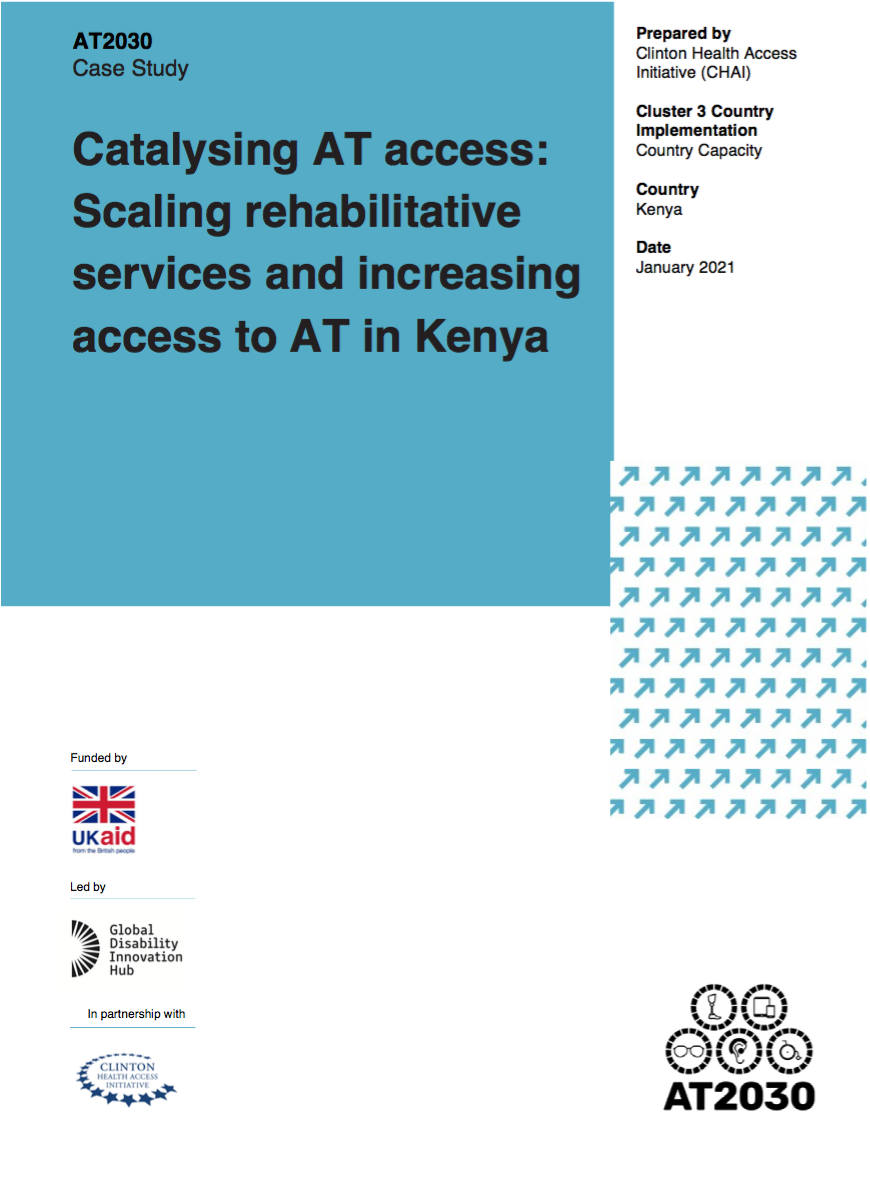
Catalysing AT access: Scaling rehabilitative services and increasing access to AT in Kenya
Clinton Health Access InitiativeJan. 13, 2021KenyaCase Studies and ReportsIt is estimated that about 100,000 people need a wheelchair in Kenya annually. Across the 47 counties in Kenya, anecdotal evidence showed that health centres and access points for rehabilitative services are not evenly distributed, appropriately staffed, and sufficiently equipped. The situational analysis showed that Kenya’s access challenges are driven by a policy gap, limited service points with few trained personnel, fragmented delivery landscape, no national specifications, standards or supply chain and limited financing of rehabilitative services and wheelchairs.
-
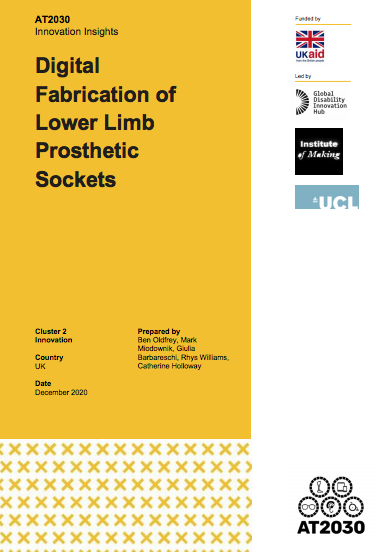
Digital Fabrication of Lower Limb Prosthetic Sockets
Dr Ben Oldfrey, Mark Miodownik, Dr Giulia Barbareschi, Dr Rhys Williams, Catherine Holloway, Global Disability Innovation Hub, UCL, Institute of MakingDec. 16, 2020GlobalCase Studies and ReportsThis innovation insight discusses current approaches to digital fabrication of lower limb prosthetics (LLP) sockets aimed at low resourced settings. Digital fabrication of LLPs sockets has been researched for a number of decades, yet these technologies are not widely adopted, and most of the activities within this domain reside in high-income settings. However, the majority of amputees are in LMICs where there is a severe lack of access to services. It is in LMICs then, that the advantages that digital technologies offer could be of particular benefit however little to no progress in digital workflow adoption has been made to date
-
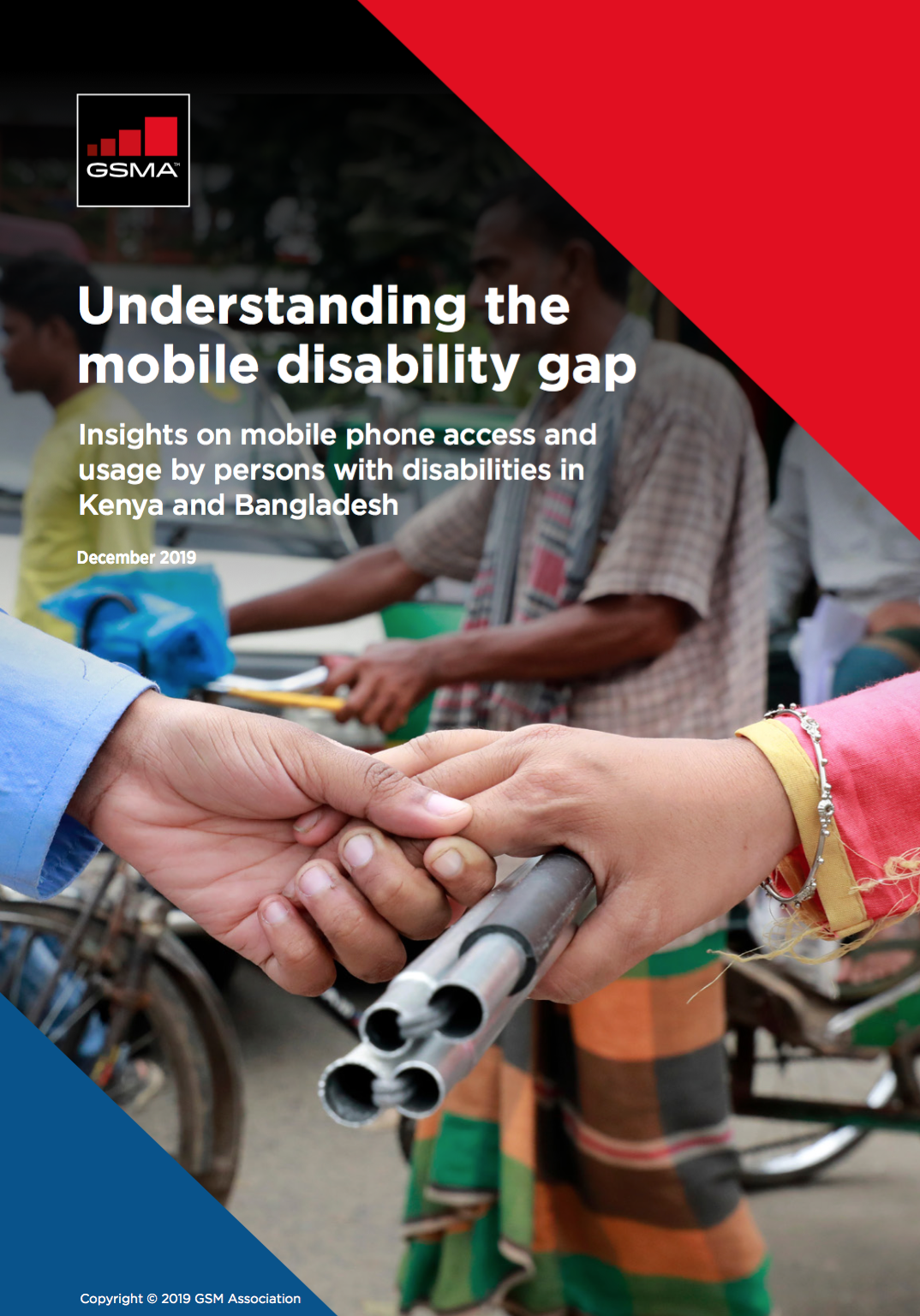
Understanding the mobile disability gap
Global Disability Innovation Hub, GSMADec. 14, 2020Kenya, BangladeshCase Studies and ReportsThere has been limited research to understand access to mobile phones by persons with disabilities and the impact of mobile technology in their lives. This research aims to bridge the knowledge gap and to understand the potential of mobile phones as assistive technologies (ATs) for persons with disabilities in Kenya and Bangladesh. It presents an evaluation of the gap and barriers to mobile phone ownership experienced by persons with disabilities, as well as the usage patterns of four main mobile-enabled services (voice, SMS, mobile internet and mobile money) and the role of mobile phones to enable access to basic services, such as education, healthcare, transportation, employment and financial services.
-
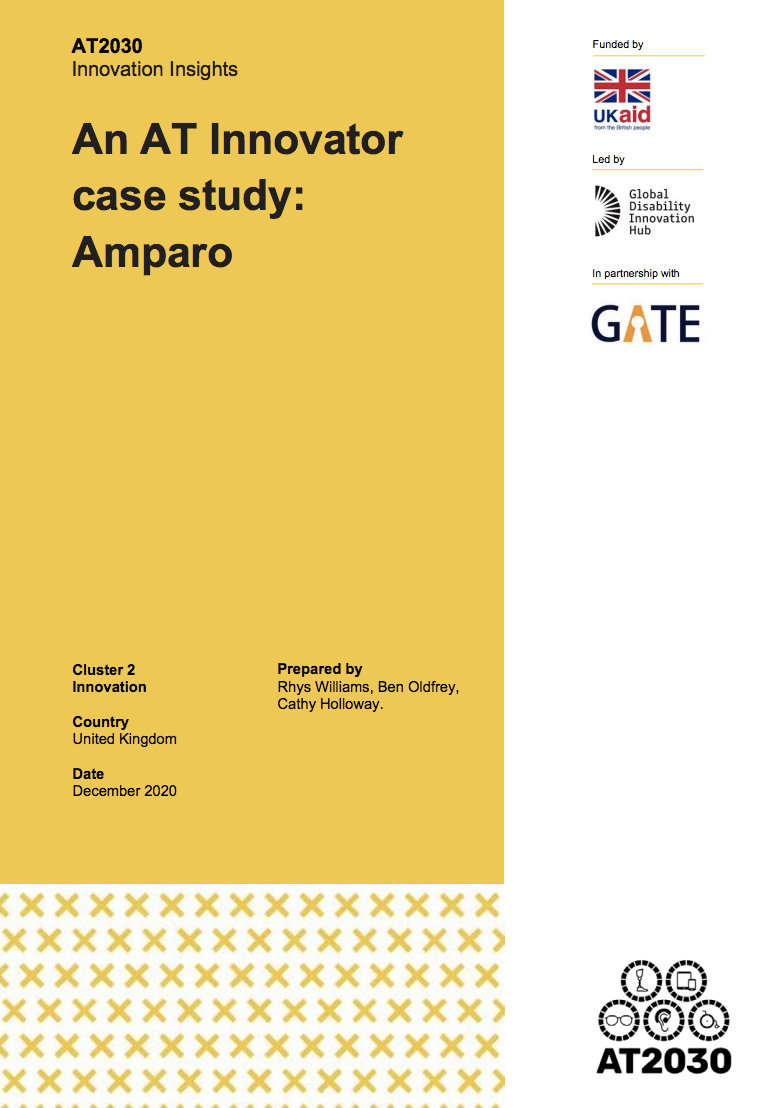
An AT Innovator Case Study: Amparo
Global Disability Innovation Hub, Catherine Holloway, Dr Ben Oldfrey, Dr Rhys WilliamsDec. 3, 2020Germany, South AfricaCase Studies and ReportsIn this innovation insight paper, we interviewed Lucas Paes de Melo, the CEO of Amparo, to discuss the journey so far of prosthetics company, Amparo. Rather than focus on the product, this insights paper provides an honest reflection of the journey to establishing an assistive technology company and delves into transferable insights. In doing so, we aim to provide insights to help current and future AT entrepreneurs to see behind the curtain of working in this space.
-
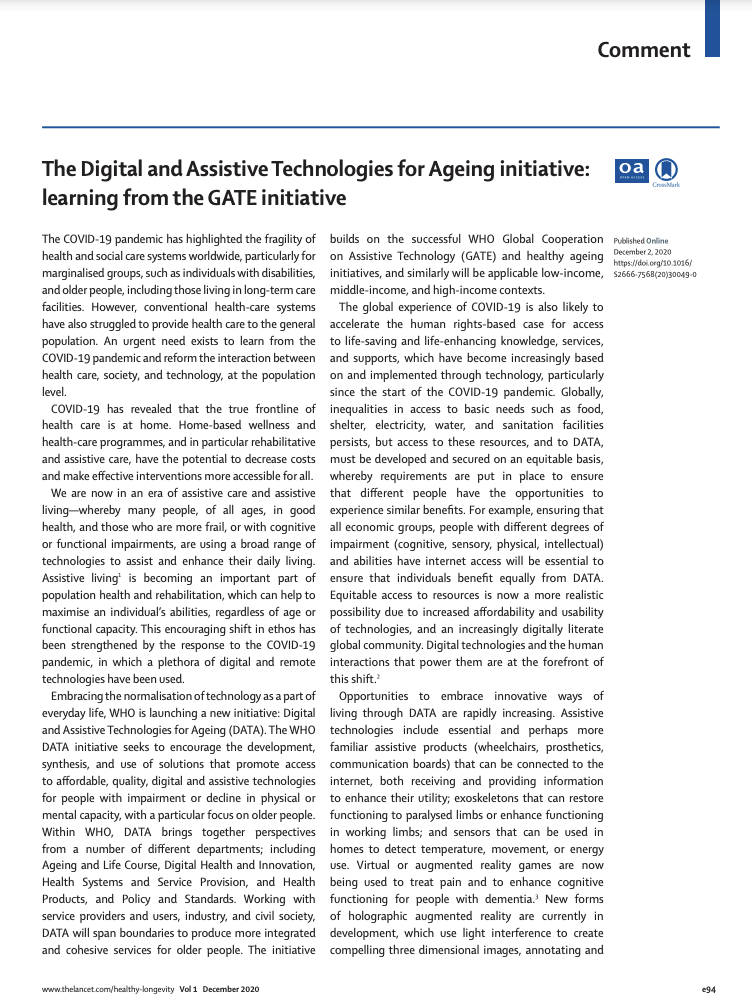
The Digital and Assistive Technologies for Ageing initiative: learning from the GATE initiative
Catherine Holloway, Malcolm MacLachlan, Chapal KhasnabisDec. 2, 2020Academic Research PublicationsA commentary piece on The Digital and Assistive Technologies for Ageing initiative: learning from the GATE initiative.
-
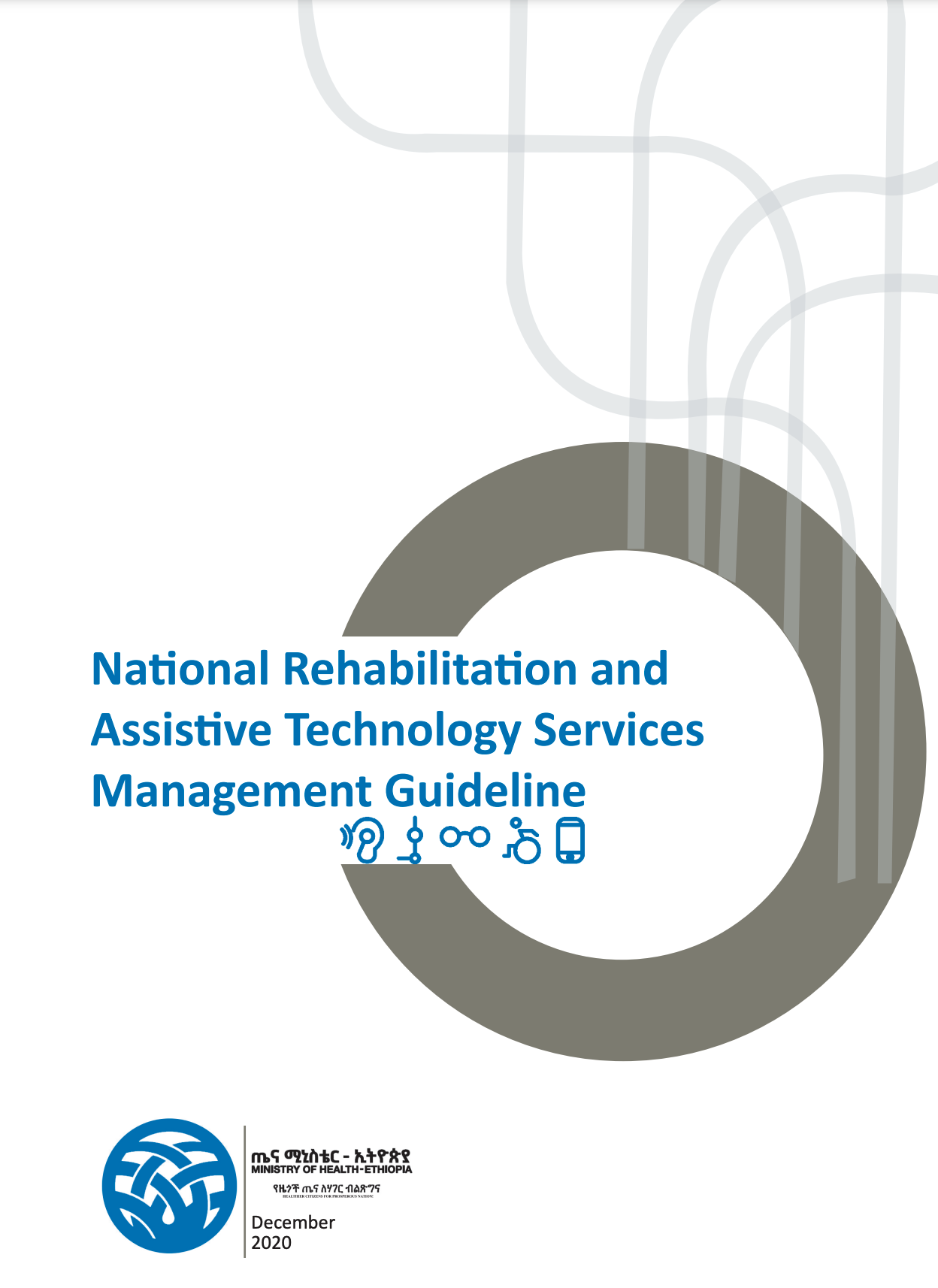
National Rehabilitation and Assistive Technology Services Management Guideline - Ethiopia
Ministry of Health EthiopiaDec. 1, 2020EthiopiaAT2030 ResourcesMedical Rehabilitation Centers (MRC) leadership, management and governance arrangements are essential to ensure effective, efficient and comprehensive rehabilitation services that contribute to the health and wellbeing of the target population. Leadership of MRC should manage their organizations and liaise with external agencies and community. There are five core functions of MRC’s leadership:
-
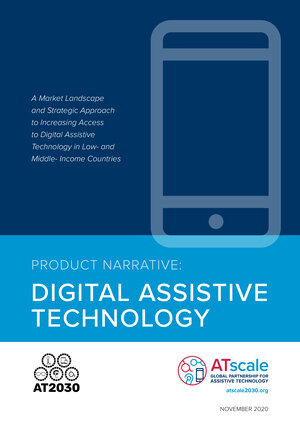
Product Narrative: Digital Assistive Technology
Margaret Savage, Tigmanshu Bhatnagar, Cynthia Liao, Mathilde Chaudron, Jeffrey Boyar, Dennis Laurentius, George Torrens, Katherine Perry, Priya Morjaria, Felipe Ramos Barajas, Barbara Goedde, Catherine HollowayNov. 23, 2020GlobalCase Studies and ReportsThis document is the final in a series of in-depth analyses that identify key barriers and promising market interventions. The previous four documents focused on wheelchairs, hearings aids, prostheses, and eyeglasses.
-
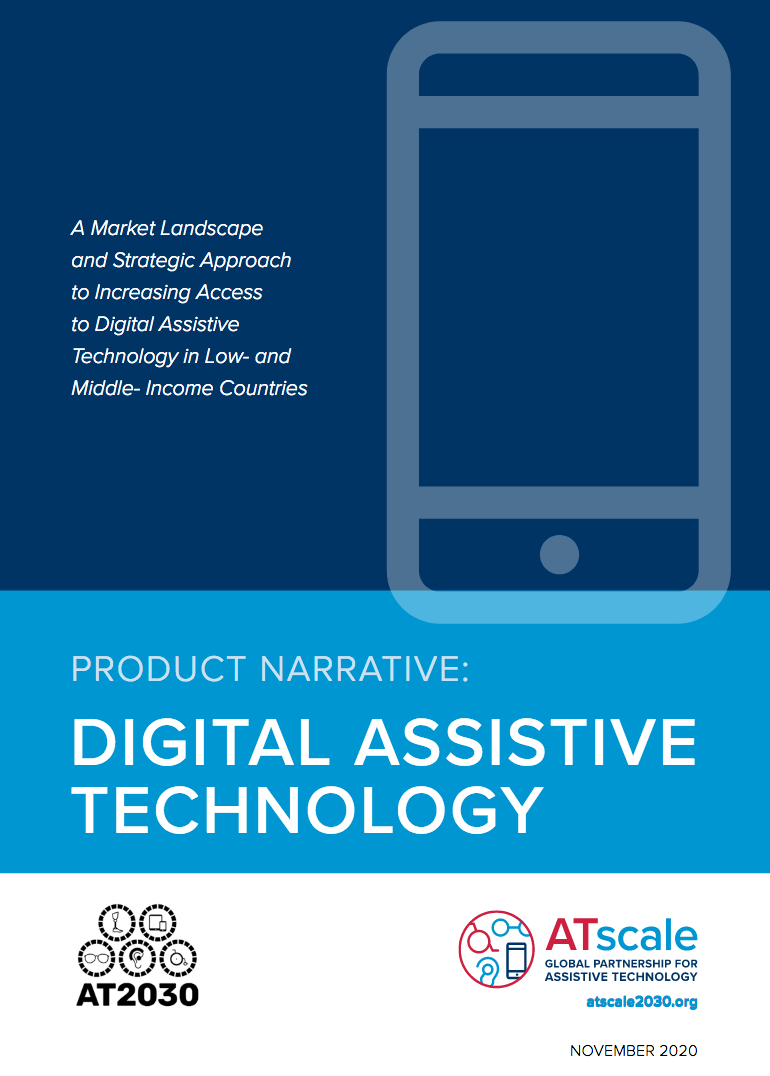
Product Narrative: Digital Assistive Technology (executive summary)
Margaret Savage, Tigmanshu Bhatnagar, Cynthia Liao, Mathilde Chaudron, Jeffrey Boyar, George Torrens, Katherine Perry, Priya Morjaria, Felipe Ramos Barajas, Barbara Goedde, Catherine HollowayNov. 23, 2020GlobalCase Studies and ReportsThis is the Executive Summary of the Product Narrative: Assistive Technology
-
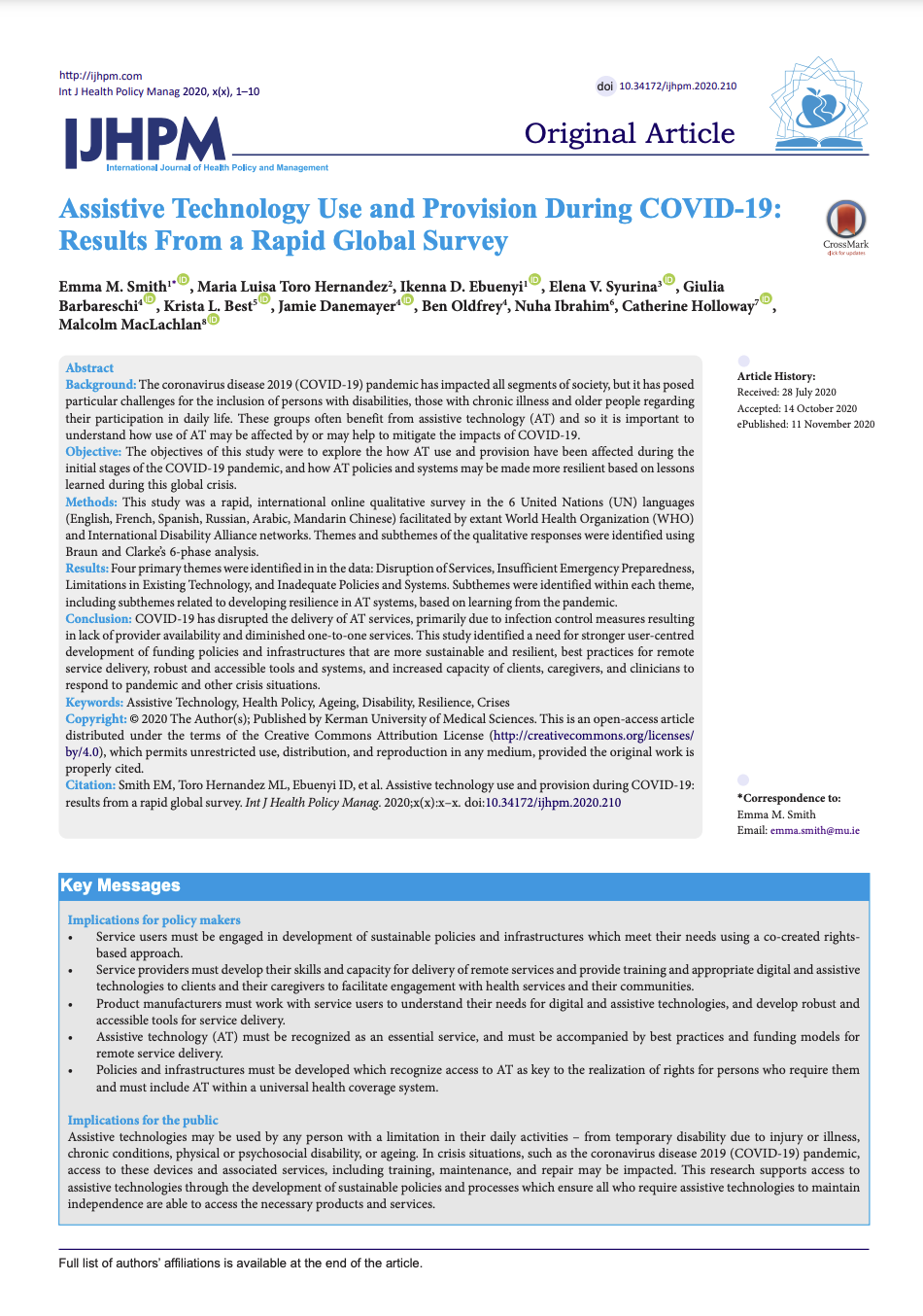
Assistive Technology Use and Provision During COVID19: Results From a Rapid Global Survey
Emma M. Smith, Maria Luisa Toro Hernandez, Ikenna D. Ebuenyi, Elena V. Syurina, Dr Giulia Barbareschi, Krista L. Best, Jamie Danemayer, Dr Ben Oldfrey, Nuha Ibrahim, Catherine Holloway, Malcolm MacLachlanNov. 11, 2020GlobalAcademic Research PublicationsThe coronavirus disease 2019 (COVID-19) pandemic has impacted all segments of society, but it has posed particular challenges for the inclusion of persons with disabilities, those with chronic illness and older people regarding their participation in daily life. These groups often benefit from assistive technology (AT) and so it is important to understand how use of AT may be affected by or may help to mitigate the impacts of COVID-19.
-
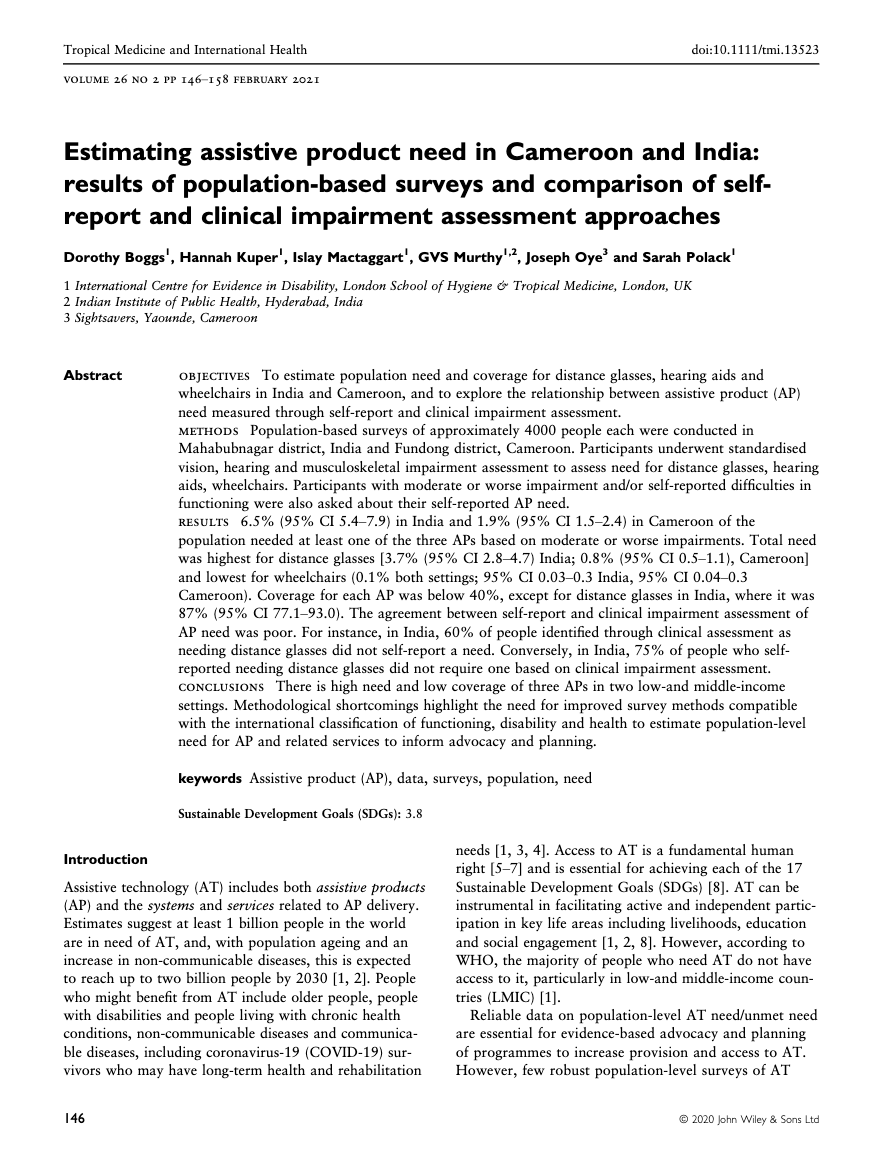
Estimating assistive product need in Cameroon and India: results of population-based surveys and comparison of self-report and clinical impairment assessment approaches.
Dorothy Boggs, Hannah Kuper, Islay Mactaggart, GV Murthy, Joseph Oye, Sarah PolackNov. 8, 2020Cameroon, IndiaAcademic Research PublicationsA paper estimating population need and coverage for assistive devices in India and Cameroon.
-
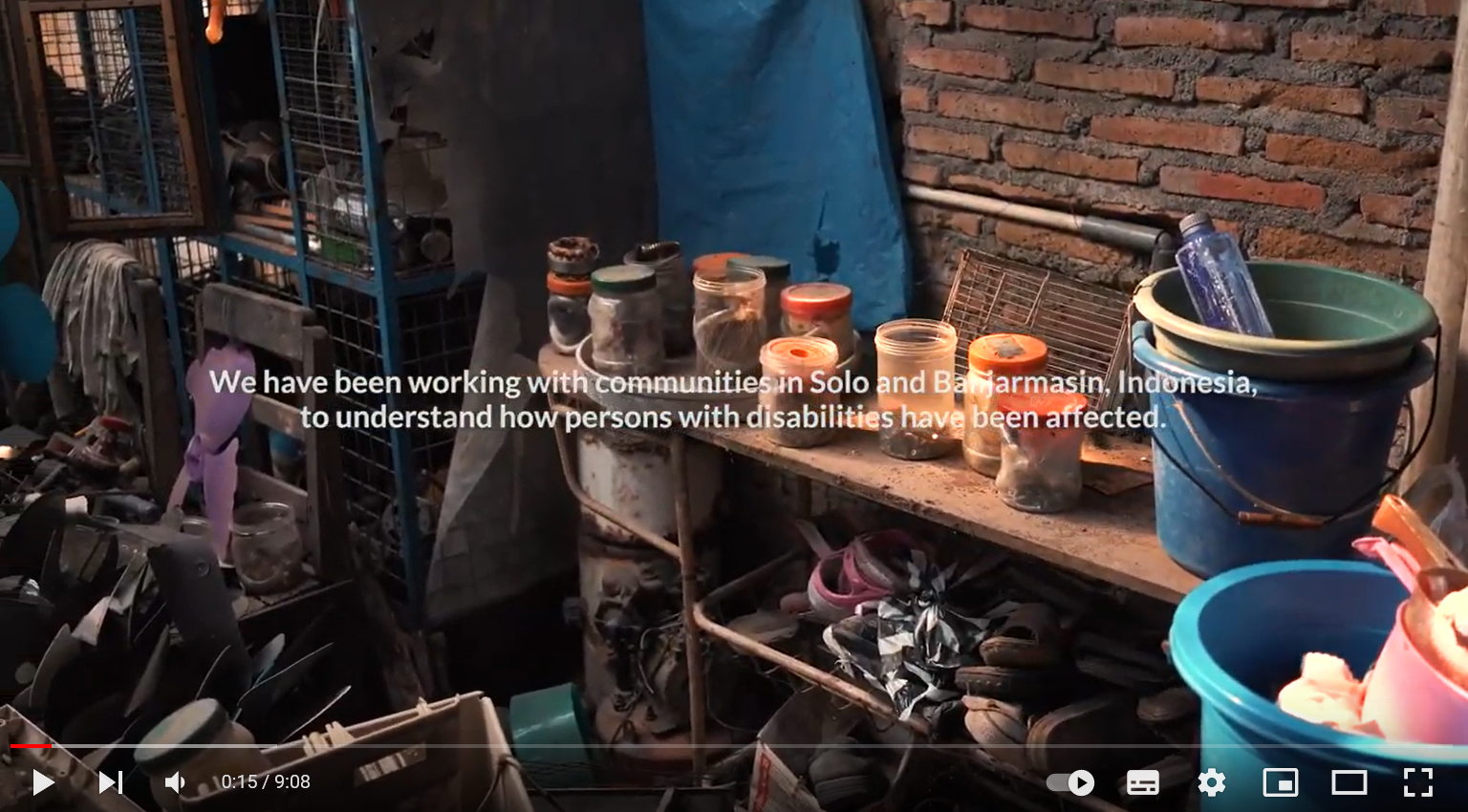
Understanding the impact of COVID-19 on disabled people's daily lives
Kota KitaNov. 3, 2020Case Studies and ReportsVideo produced by Kota Kita with DPU (UCL's Development Planning Unit) as part of 'AT2030: Community led solutions' research project.
-
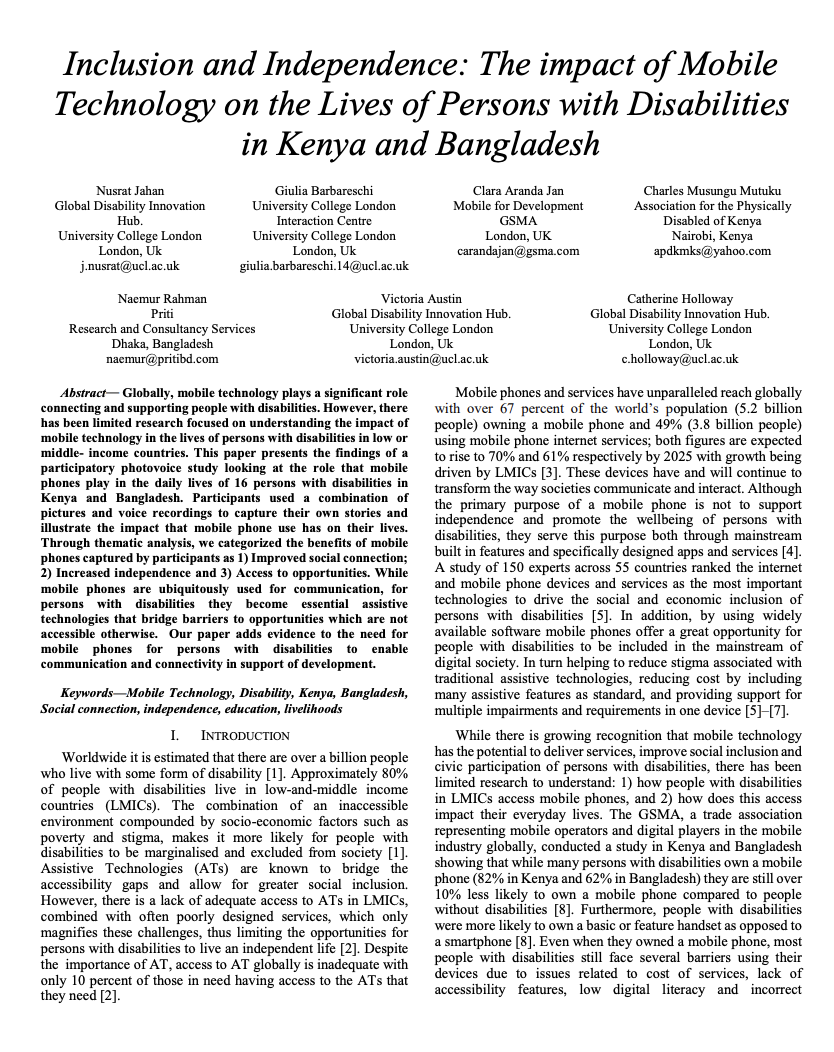
Inclusion and Independence: The impact of Mobile Technology on the Lives of Persons with Disabilities in Kenya and Bangladesh
Catherine Holloway, Vicki Austin, Giulia Barbareschi, Clara Aranda, Nusrat Jahan, Naemur Rahman, Charles Musungu MutukuNov. 1, 2020Academic Research PublicationsThis paper presents the findings of a participatory photovoice study looking at the role that mobile phones play in the daily lives of 16 persons with disabilities in Kenya and Bangladesh.
-
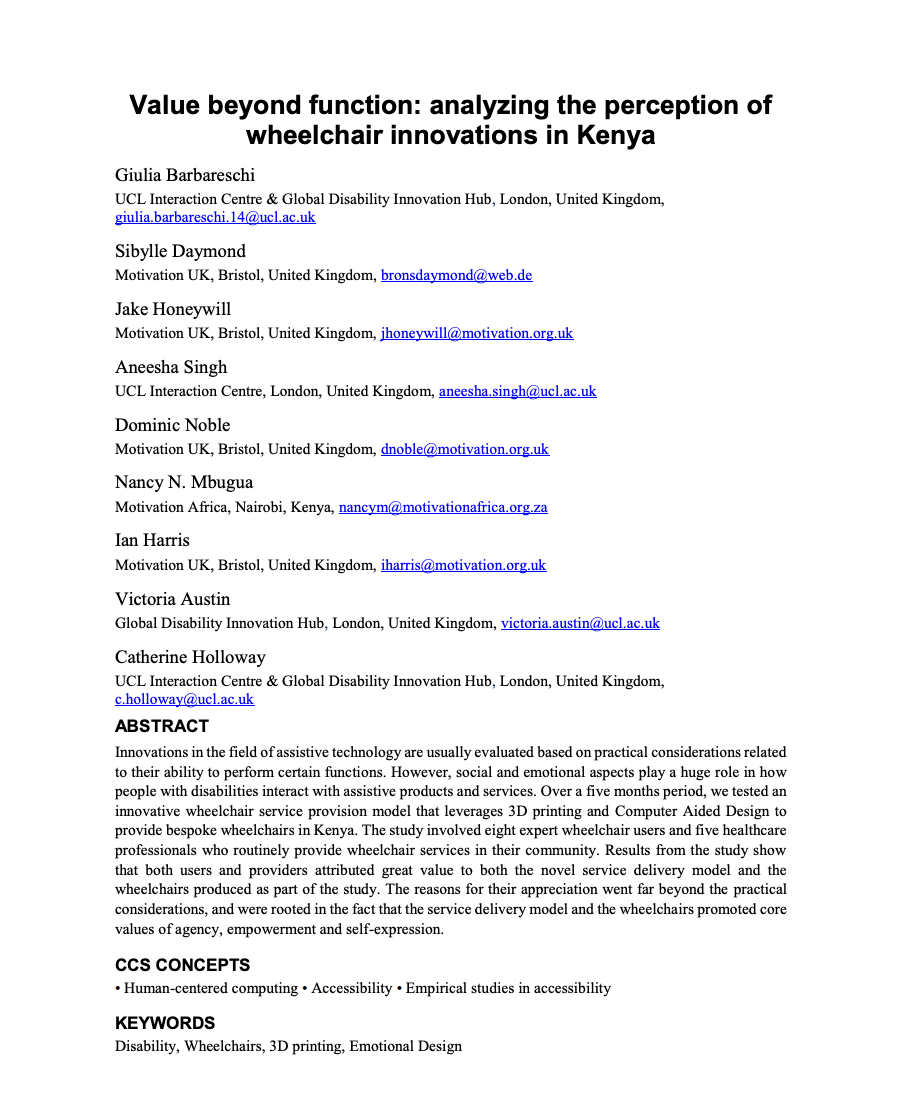
Value beyond function: analyzing the perception of wheelchair innovations in Kenya
Catherine Holloway, Vicki Austin, Giulia Barbareschi, Sibylle Daymond, Jake Honeywill, Dominic Noble, Nancy Mbugua, Ian Harris, Aneesha SinghOct. 31, 2020KenyaAcademic Research PublicationsInnovations in the field of assistive technology are usually evaluated based on practical considerations related to their ability to perform certain functions. The study involved eight expert wheelchair users and five healthcare professionals who routinely provide wheelchair services in their community.
-
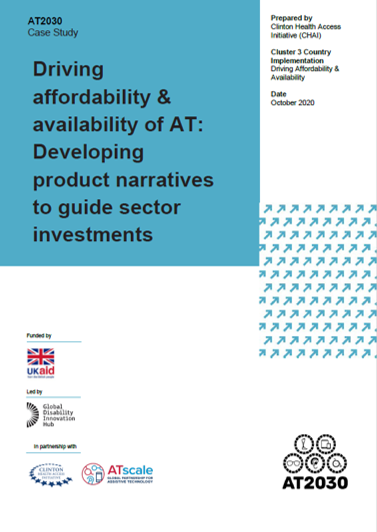
Driving affordability & availability of AT: Developing product narratives to guide sector investments
Clinton Health Access InitiativeOct. 31, 2020Case Studies and ReportsUnder the AT2030 programme and in support of ATscale’s strategy, CHAI conducted market and sector analyses for five assistive products and related services—wheelchairs, hearing aids, eyeglasses, prostheses and assistive digital devices and software. This summary looks at how the product narratives are being used to drive affordability and availability of AT.
-
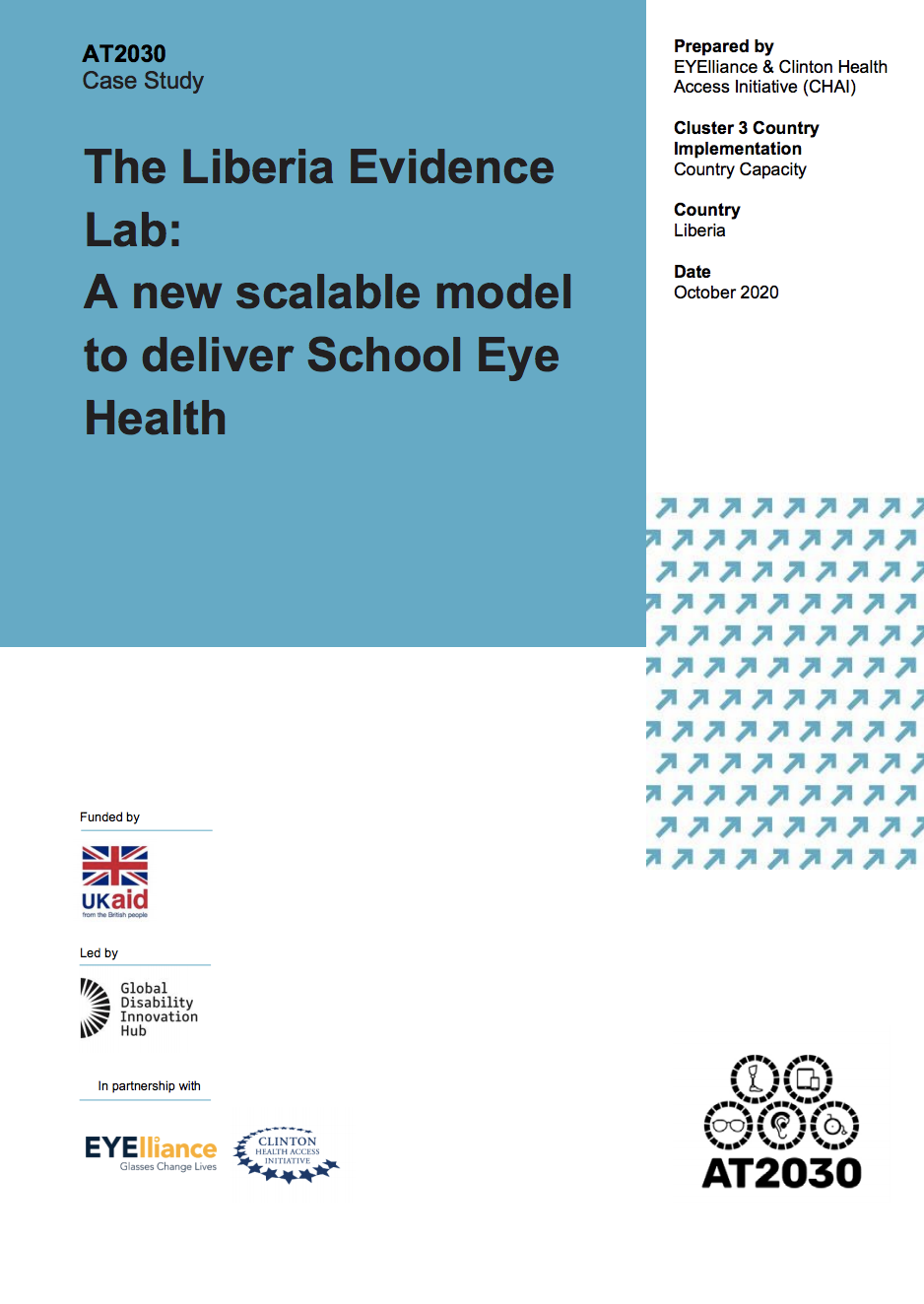
The Liberia Evidence Lab: A new scalable model to deliver School Eye Health
Clinton Health Access Initiative, EYEllianceOct. 30, 2020LiberiaCase Studies and ReportsUnder Cluster 3: Country Implementation of the AT2030 programme, AT2030 partners are working with country governments to identify opportunities to drive availability and affordability of AT. EYElliance, CHAI and the AT2030 programme published a case study on work happening in Liberia to expand access to eyeglasses so that students can achieve better outcomes in school.
Previous PageNext Page
